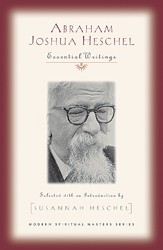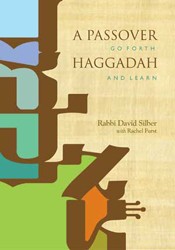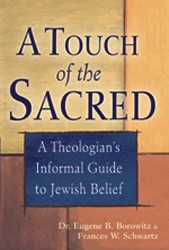Byron Sherwin wants Jews to take Judaism seriously. This cannot be done in the abstract. Whereas the philosophy (or philosophies) of Judaism may be studied by a non-practitioner, the theology (or theologies) of Judaism can only be fully understood by one who is committed to Jewish practice and observance. One can only find meaning in one’s faith if one is practicing that faith. Grappling with religious faith, practice, and experience, especially trying to understand God’s relation to the world, is a necessary adjunct to making one’s religious practice meaningful.
In the first several chapters the author laments the shallowness of contemporary Jewish experience and demonstrates how secular values have been substituted for genuine Jewish ones. According to Sherwin, most Jews today are “culturally, conceptually, and semantically displaced from the constitutive texts, ideas, and traditions of Judaism” and this poses a serious threat to the continuation of the Jewish people. Citing Solomon Schechter and Abraham Joshua Heschel before him, Sherwin states that Judaism remains an unknown religion to most American Jews.
Substitute forms of Judaism, JCCs, federations, social action groups, etc. forming a civil religion, is not Judaism. Judaism is more than a system of laws. It is also a belief system which addresses the theological presumptions upon which the law is based. Reducing Judaism to practice alone marginalizes theology, when in fact a halakhic way of life is meaningless without understanding or “…considering the theological presuppositions upon which the halakha rests, such as a belief in resurrection and in the authoritative role of rabbinic interpretive tradition.” He goes on to castigate inauthentic forms of liberal Jewish thinking as idolatrous, not viable, and as threats to the survival of genuine Judaism. Theology bespeaks a prior commitment. Jews are bidden to do what they believe and believe what they do.
Halakha is faith in the form of deeds. Performance of the commandments represents belief articulated as action. In a sense, halakha may be considered the “practical theology” of Judaism, that is, Jewish theological ideas expressed as specific concrete acts.
This concept is summed up by Louis Jacobs as: “The whole question of whether one can choose within Judaism only arises if one has first chosen Judaism.” It should be noted here that Dr. Sherwin was ordained as a Conservative rabbi.
It is only in the second half of the book that we get down to theology. Sherwin makes the case that theological creativity derives from the ability to create new meanings from old texts. We need to produce Jewish narratives that are authentic, coherent, contemporary, and communicable. Torah study does not only convey information but is transformative. The informed and transformed reader can then generate a reimagined theology of Judaism. This idea is contained in the Torah blessing describing God as a “notain haTorah” in the present tense, continuously giving the Torah and perpetually revealing it while we continuously receive it.
After establishing that experiencing the life of faith must precede theological speculation, we are treated to a presentation of depth-theology, descriptive or constructive theology, and philosophical theology. The ideas are presented in a forthright, clear, and concise manner belying the scholarship behind them. The excellent notes and bibliography will guide the reader who wishes to explore these ideas in more depth.
Originally published in 2009, this book has been reissued as a paperback. It is highly recommended for rabbinical students, veteran rabbis, and anyone who takes theological Judaism seriously.





